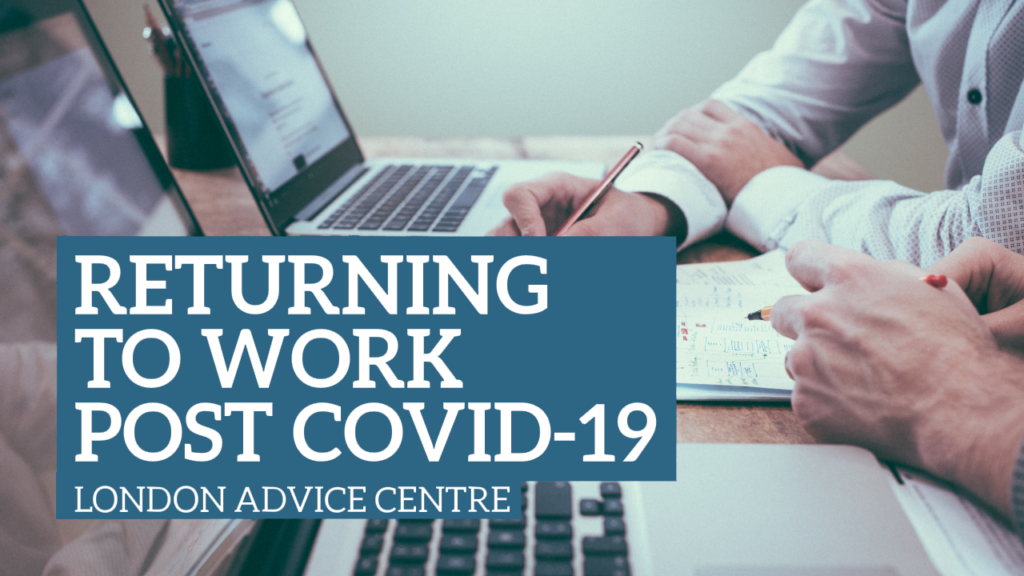
The return to work
As life is returning to normal, workplaces are reopening and businesses are encouraging employees to get back into the office. But we’ll now be working with the ‘new normal’ and some may not be ready for the return to work. This post will give you a few tips on safely reopening your workplace, understanding some staff may still want to work from home, and how you can stay safe. In the next post, we’ll offer advice and guidance on understanding the anxieties that come from a post-Covid world and how to protect your mental health and that of those around you in the workplace.
It’ll be key for employers and business owners to understand that the past year will have permanently affected the way we work. Work culture has shifted to a better understanding and desire for a stronger work-life balance, with employees seeing new options open to them. Ensure your workplace runs smoothly and maintain high standards (including hygiene). Employee staisfaction will be key is ensuring a smooth transition.
As an employer, you can start with setting out clear policies for all those in the workplace to follow. These should be documented and easy to follow and understand with open access. The documentation should also contain new risk assessments particularly if you work in ways where standard guidelines (such as social distancing) are difficult to uphold (such as hospitality or construction).
Some key ideas for new policies
- Hygiene and cleaning guidance
- PPE guidance (including masks, gloves, face shields, and other forms of PPE)
- Social distancing information and how that affects the office layout. Where to sit/work and social interaction guidelines of staff and clients)
- When not to come into work (whether that be self-isolating or WFH etc.)
- Communication guidelines (new HR policies and how company-wide announcements are going to work moving forward)
An obvious step will be to ensure all government guidelines are being followed by those returning to the office; standards such as social distancing, sanitizing and regular cleaning being consistently enforced are the best way to keep everyone safe.
For some, the prospect of returning to the workplace is exciting after a year of working from home. But some employees may find the change hard causing them anxieties so they may want to remain working from home. As an employer, you should strive to understand their perspective and try to accommodate their needs as best as possible. Using your new policies ensures there are specific measures that are being taken to maintain a safe working environment. For example, clear guidance on PPE and how to use it best. These could include sanitizing your hands before touching or removing your mask; having cleaning stations throughout the workplace; and clear guidance on social distancing within the office even if that means rearranging your current set up).
A note for employers
Changing the way you work and allowing your employees to choose how they return to work may be key in defining your path out of the pandemic and beginning a new way of working in a post-Covid world. Many companies have extended their work from home policies until later in the year. Others are creating a hybrid version of working. The hybrid method combines office life and working from home to create a more balanced way of living. This way can aid in social distancing and managing precautionary measures in working with an office/workplace, but more importantly, can allow workers to live a more fulfilled life with their work-life balance that many have developed throughout the past year.
As we attempt to return to normal, or the ‘new normal’ perhaps, we must remain cautious and act with care. The health of your employees (and yourself) should be the top priority to make sure everyone stays healthy and a safe workplace environment is maintained.
Please note: this is not legal advice, please refer to gov.uk for further information and official guidelines.